The Tao of the bike mechanic
What bike mechanics can teach us about being in the moment
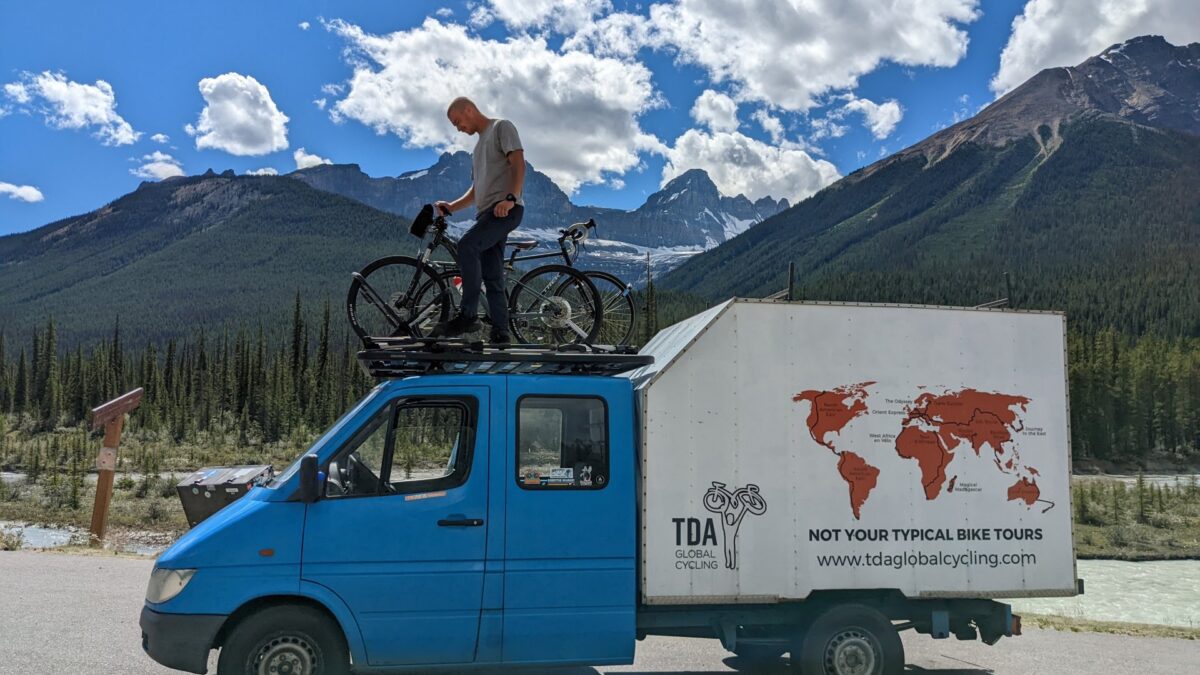 Photo by:
Shauna Danos
Photo by:
Shauna Danos
I’m two months and about 5,000 km into my traverse of the continent. That’s a little more than a third of time and distance. Almost from the start I’ve had niggling issues with my bike, which never surfaced all the time I was training on it. My cranks were giving me knee problems; the brakes were squeaky and slow to respond; my front wheel had a tendency to judder, my tubeless tires consistently lost air. Every few days I’d rather apologetically approach Malcolm. Malcolm is the tour’s bike mechanic. He’s about six-foot one, blonde and has something of the look of Steve McQueen, of Bullitt and Getaway, cool, and quizzical as he is assessing exactly what you are trying to say.
Cyclists swear by the mechanic they have finally found after months or even years of searching. That mechanic is a combination of wonder worker, diagnostician par excellence and father confessor. When talking about the ills of your bike, it is as if you are revealing your troubled soul, and in both cases you are often inflicted with incoherence.
“I have a judder.”
“What do you mean by judder?”
“Um, the wheel kinda vibrates.”
“What is the wheel doing exactly?”
“I don’t know what it’s doing; I just feel it.”
“Uh-huh.”
So these conversations go. You talk of judders, squeaks, rattles, rubbings and all the other ways in which your bike whispers or shouts at you in a tongue you never really mastered. Which is why you search for the mechanic who truly knows the language.
That’s where Malcolm comes in. There seems to be a particular quality in the best mechanics I have come across of taciturnity and precision. Malcolm listens and then listens some more. There are silences as he ponders the exact meaning of what you are trying to convey. He probes gently, but persistently. He is intent on getting to the heart of the matter. He is that physician who goes the extra mile to ensure that the exact and necessary cure is effected.
I watch him work from a distance, he needs to be totally focused on the task at hand, and am in awe at the swiftness, dexterity and care with which he manipulates the various parts of the machine. Perhaps not a machine for him. He removes a derailleur as if it were an organ ready to be transplanted.
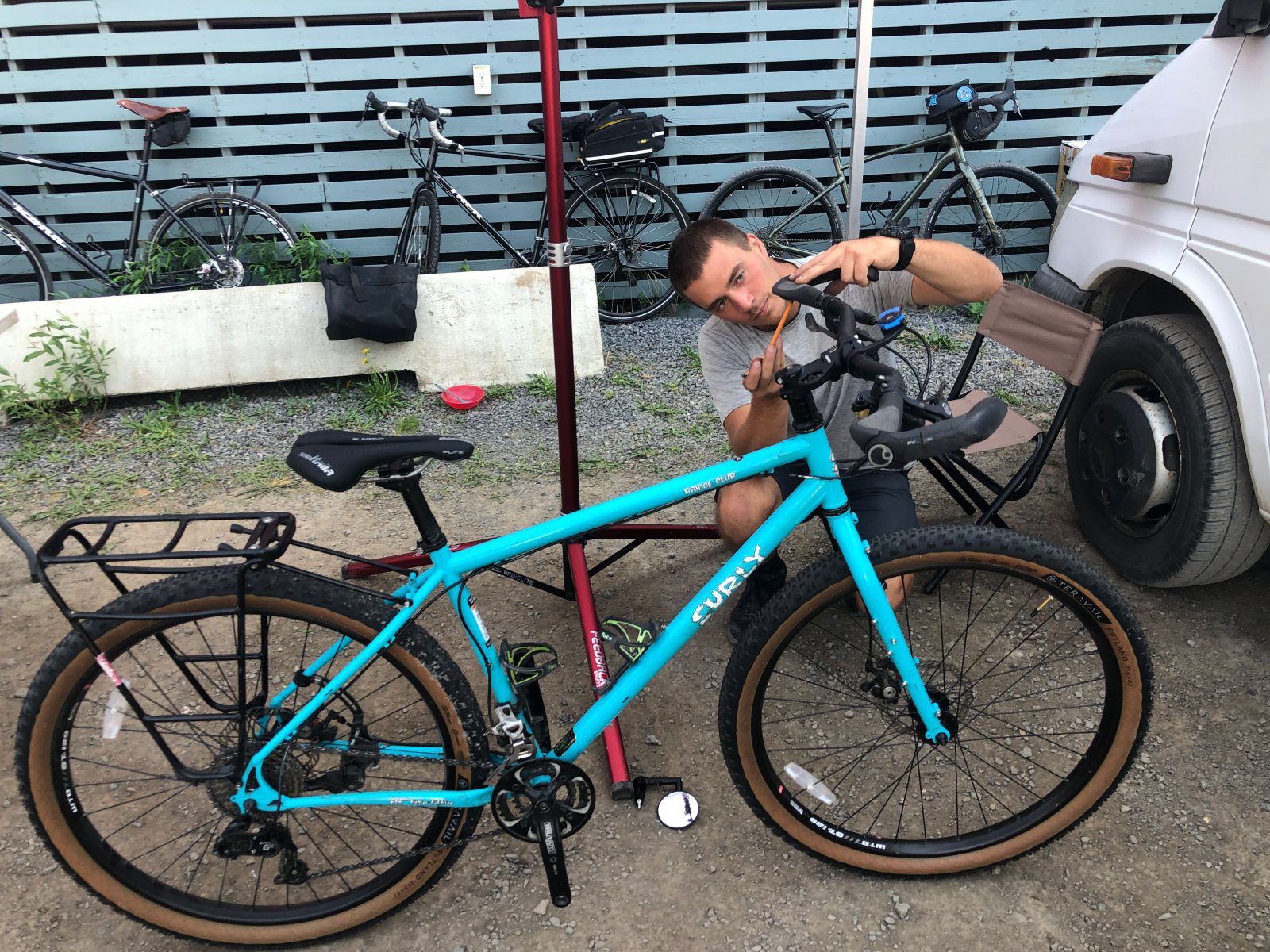
He is not working in the ideal conditions of a bicycle mechanic shop with all the tools he needs at his disposal, neatly organized and arrayed on pegboards. There isn’t a variety of spare parts. We’re on the move every day. He doesn’t have time to diagnose and test. He can’t tell a cyclist come back in a week and we’ll have it fixed. We have to be in the saddle at 6:30 or 7:00 am the next morning. Malcolm has a couple of hours before dark to set things right. He sets up shop in our often primitive camp sites or a parking lot on our rest days. If it’s raining he opens up a canopy and continues with the work at hand. He is inventive, finding novel solutions with the limited means at hand.
I asked Malcolm to sit down with me because I wanted to find out more about bike mechanics and the world they inhabit and create. I had in mind a favourite book of mine from the seventies: Robert Pirsig’s Zen and the Art of Motorcycle Maintenance. I had a hazy and romanticized notion of the bicycle and its mechanisms as a metaphor for the working of the self in the world. What I found out surprised me and was more interesting than my pre-conceived notions. There were more sides and depths to this mechanical wizard, who had only just turned 29, than I had ever considered.
Malcolm grew up in Pittsburgh. His father was a consultant in the non-profit sector; his mother was a law professor with a focus on health and family law. His own particular interest initially was medicine. He studied neuroscience at university and worked part-time at a bike shop. In his final year of studies he realized that he didn’t want to be a doctor. Suddenly, the world opened up to possibility and uncertainty.
He wanted to expand his horizons, live differently, explore other worlds and other cultures. He signed up for the Peace Corps. It was 2017. Donald Trump had just been sworn into office. Malcolm had committed to spending two and a half years of his life in public service in Guinea, West Africa. He was leaving his home for a land, a culture and languages foreign to him. He did so with his eyes open understanding that there was something archaic and colonialist about the endeavour: the white person coming to help in a developing nation. He and his fellow volunteers went in with a different perspective. They would serve in whatever way could be useful, but to them the greater good lay in what they could learn from their hosts and take home, say, a differing view of the Muslim world, the dominant religion in Guinea.
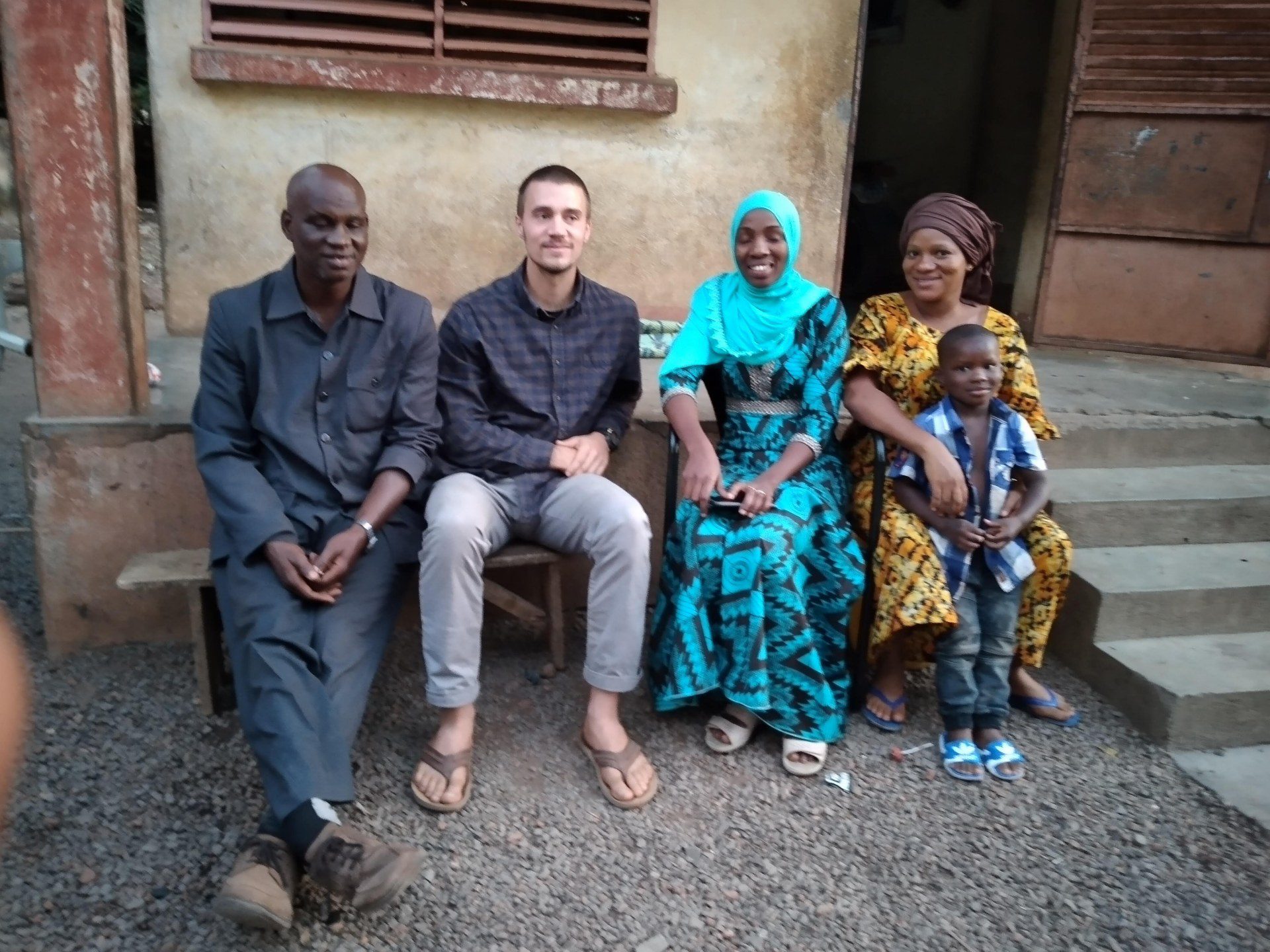
Malcolm’s orientation included learning French and Pular, one of the three largest indigenous languages of Guinea. He was stationed in the Labé region, in the centre of Guinea acting as support for maternal and child health care workers. He adapted quickly to living in a cement brick house with no electricity or running water while understanding how privileged his life was. He began to see the world with new eyes. Over the first few months he developed a great respect for the poverty-stricken nation and the resourcefulness of its people, how they repaired and made use of every piece of equipment–housewares, clothing, tools—which back home would have long been discarded. I wondered if that was the source of his own uncanny resourcefulness on our trek.
He returned to the States in January, 2020 as Covid was looming. Malcolm was still searching, still unsure what his next step would be. The first imperative, however, was to get a job. Bike shops were deemed an essential service during lockdown while demand for bike services shot through the roof. Given his previous experience he landed a job at one of Pittsburgh’s leading bike stores. He quickly gravitated towards the repair and service side of the work. He learned his trade on the job mentored by some great teachers, with a special mention of Jared Boyer.
“So you fell into it?” I ask him.
He nods. “There was no life planning or reflection. Once I started I found a lot of satisfaction in it.”
I had the sense of someone who pushed himself seeking a mastery of his new discipline, and perhaps, through that something else, something that lay beyond the world of gears, brakes and shifters. He’d go home after a long day’s work and spend hours studying technical manuals to grab hold of the arcane details that may not have been necessary for his work but were essential for his need to comprehend. He brought to bike mechanics the seriousness which he had applied to his neuroscience studies and his work in the Peace Corps.
I ask him if the work opened up a different way of thinking about life. Did it leave him with some “Zen” insights? Malcolm ponders for a few minutes and then seems to go off on a tangent.
He tells me about an article he read about an American watch collector who spent thousands on his habit, which was linked to his increasing dismay about the 2016 election. The collector saw a world untethered, mad. Malcolm’s comment was that the collector was creating a world of order out of impending chaos.
Malcolm concluded, “it is tempting to have a domain of knowledge that is specific, that you can master and have something steady and reliable.”
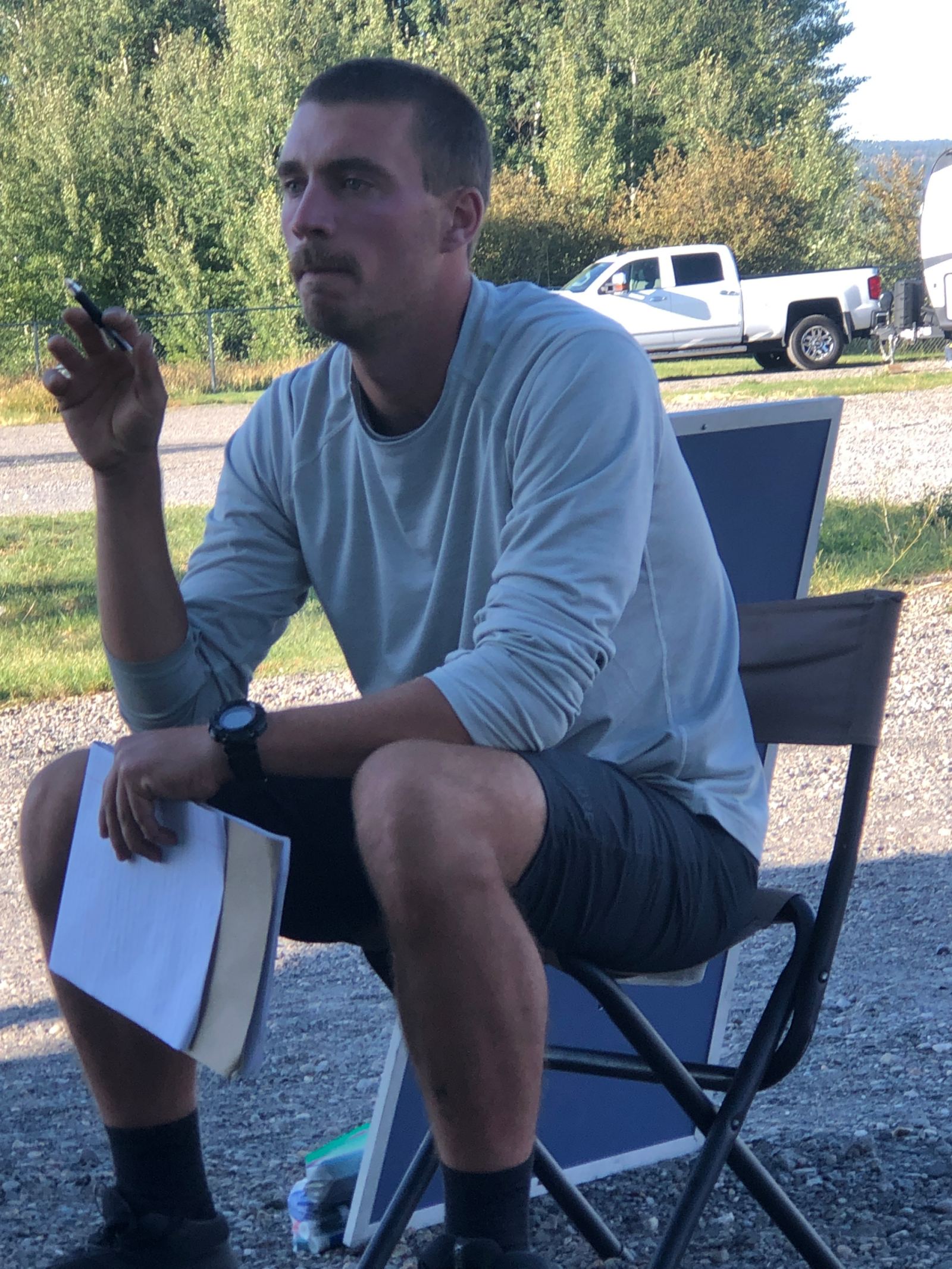
His words affected me. I could see how deeply he felt the turbulence of our times. I thought with sadness of the state of the world he and his cohort were in the generational process of taking over: the divisive agony of America, the onslaught and enduring impact of the pandemic, the growing calamities of climate change.
Malcolm didn’t articulate in so many words a Zen of bicycle maintenance, but it seemed to me, regardless of the future it will play in his life, the work has provided him an immediacy of being in the moment, a control that had to do with inwardness and not domination, and in some obscure way a mode of healing, for those who come to him for their bicycle ills and for the world which can thrive on the simplicity that at its best bicycles offer.
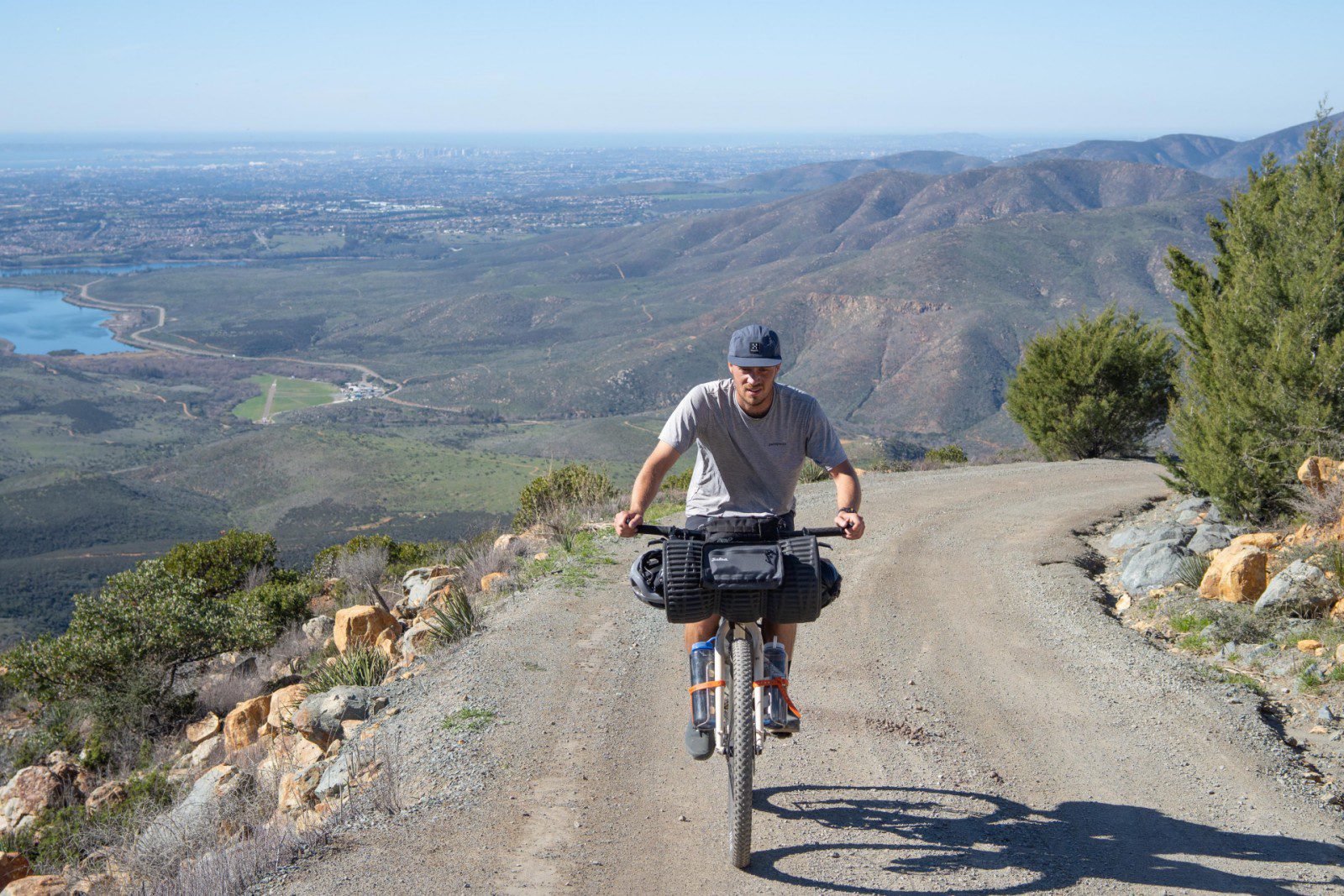
Malcolm may have fallen by happenstance into the biking world, but a few days ago I saw him as he cycled into camp on the toughest road we have had on this trek: 10km of steep gradients on rock, sand and loose gravel. His face was lit up and his lips were puckered in the impish grin he has when delivering one of his dry witticisms. This time there was also a roguish, determined look about him, the look of someone who has found a secret passage of the heart. I thought of Steve McQueen on his motorcycle in The Great Escape.
